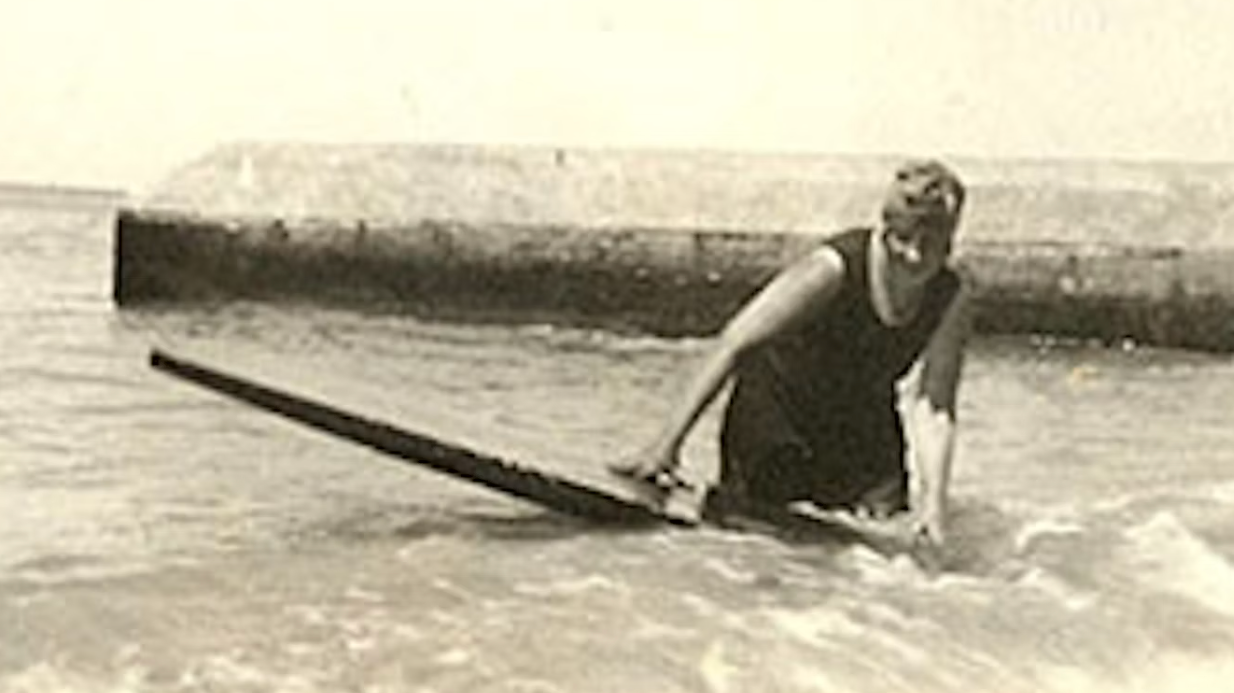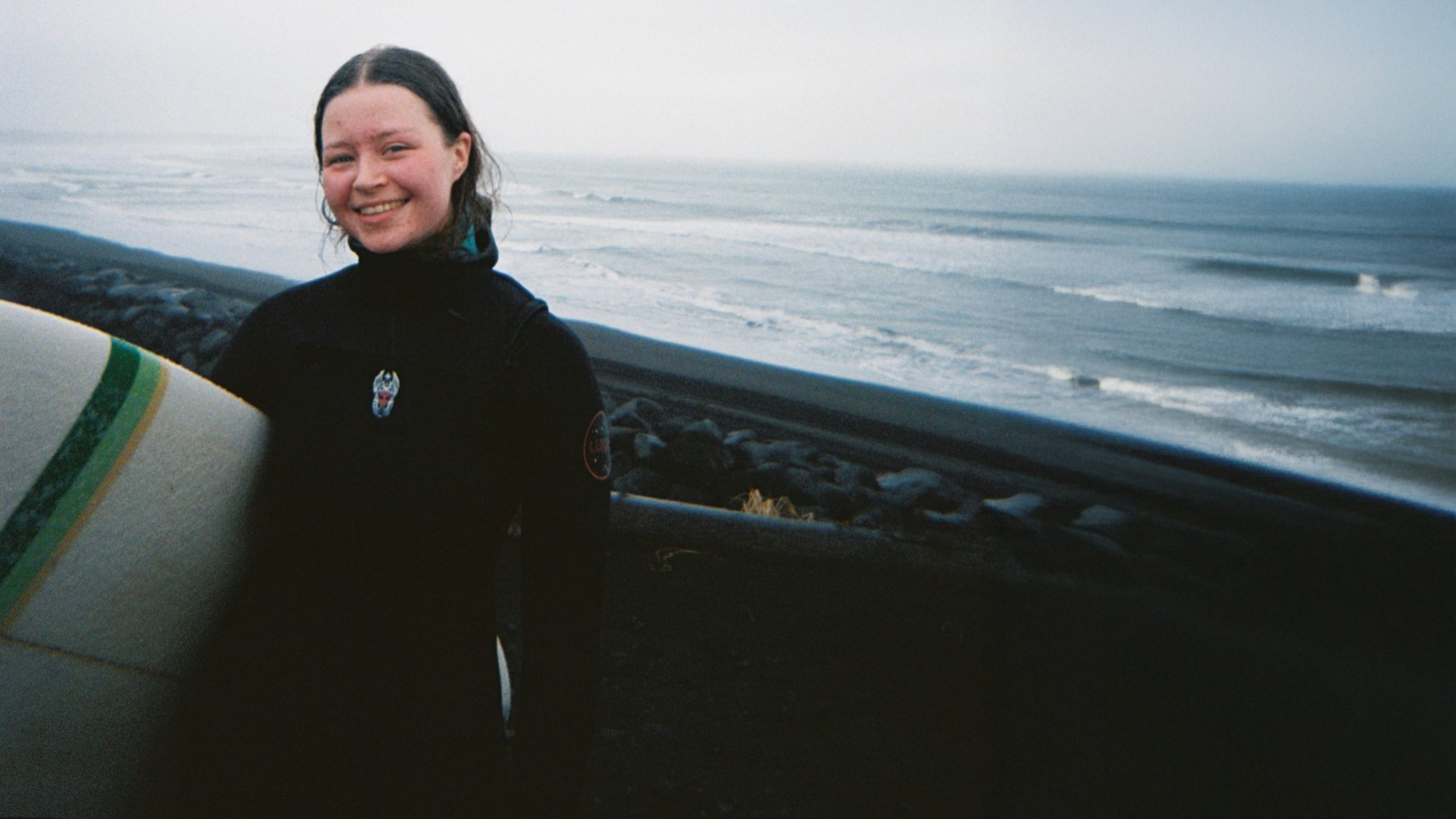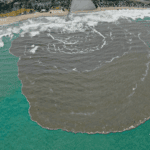Now Reading: Insider tips on surfing more, working less—without breaking the bank
-
01
Insider tips on surfing more, working less—without breaking the bank
Insider tips on surfing more, working less—without breaking the bank

Whenever I (Zuz Wilson) look at the photos from Girls Who Can’t Surf Good on their tropical surf getaways, or when someone is planning their next surf trip or looking for a retreat in a place I’ve never been to, I feel a slight pang of envy.
How do they do it? How come everyone but me has so much spare time (and money) to travel and surf?
I asked. I got the answers. Happy to share.
The art of financial minimalism
This is a classic. You work hard for a few months (or even a year, if you’re willing to take a career break), save every dollar, and then take a long surf trip before working again.
This also works if you have a lot of PTO/paid vacation—save up for that one big annual trip.
Freelancing: feast or Famine, but worth it
Freelancing is unpredictable, but it gives you total flexibility to travel and surf.
- You could be like Christiana, a graphic designer who works out of her van between surfs.
- Or Jane, who sublet her apartment and moved to Mexico for the winter to surf.
- Or Lisa, a nutritionist who moved her entire business online and now travels full-time.
These girls are winning!
Similarly, if you work remotely and can dictate your own schedule, you can:
- Be like Claire, who works mornings and surfs afternoons.
- Be like Kamile, a UX designer who moves every few years to a new surf town while working remotely.
Move closer to the surf
You could make a permanent move to a surf town where your currency stretches further.
Of course, moving to another country isn’t as easy as traveling on a tourist visa, but it’s something to consider long-term. Or just move closer to your local break.
Shari moved from Canada to Australia to be 50m from the surf. There’s a reason why I live a 7 min drive from the ocean instead of in the middle of central London.
If moving isn’t an option, request work near the surf!
- One of our Girls Who Can’t Surf Good is in the military and requests coastal assignments.
- Cynthia, a flight attendant, surfs on layovers.
- Rachel, a field engineer, extends her business trips to surf.
- I used to travel from London to San Francisco for work, and then sneak out to Waikiki for extended stay.
Hacking your PTO
Not everyone’s job or family situation allows them to work remotely, freelance or to move somewhere else. If that’s not available to you, use your PTO wisely.
Stack your paid days off around national holidays, long weekends, or even off-season surf trips to avoid crowds and score cheaper stays.
Sometimes, life makes the decision for you
Burned out? Quit your job? Questioning your life choices? You surf until you figure it out again.
Sometimes, the decision to surf more is made for you. You burn out, you quit, you start questioning everything—and then, you surf until you figure it out again.
Surf-friendly careers exist
Now, if you’re choosing a new career with surfing in mind, there are some solid options.
Any freelance or remote job that can be done on a laptop—copywriting, editing, design, web coding, social media, digital marketing, software development—is surf-friendly.
⚠️ Warning: Some of these jobs aren’t AI-resistant. And I wouldn’t recommend becoming a voiceover artist either (it’s going to be a slaughterhouse).
Seasonal and gig work is another great option. Work hard in peak season—bartending, ski instructing, yoga or surf coaching—then surf when the off-season hits.
Longer shifts mean more full days off—so if you’re a firefighter, nurse, EMT, you could actually surf more than someone stuck in a Monday-to-Friday office job.
Then there are the travel-heavy careers that naturally take you to surf destinations. Flight attendants, travel photographers, journalists, yacht crew, marine biologists—some of these are easier to get into than others, but if you can pull it off, why not get paid to travel AND surf?
And if you need a stable paycheck, teachers and government jobs tend to offer big PTO, paid holidays, and summers off.
I even have friends who clock out at 2:45 PM every day—but they shall remain nameless.
Or just… make surfing your career
I know what you’re thinking: “That’s not realistic.”
But so many girls in Girls Who Can’t Surf Good have already made that leap!
They organize surf retreats, run surf camps, launch surf brands, create custom wetsuits, make surf art, and start surf podcasts (hi, it’s me).
Bottom line: you have options
Some are more radical than others, but they exist.
So now the real question is:
What’s holding you back?
Comfort?
Money?
Fear of change?
I’m raising my hand to all the above.
But if surfing more means experiencing the magic of the ocean every day instead of just once in a while…
Isn’t it worth the risk?





















